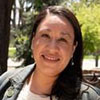


Select one of the options below:

CSU’s online Bachelor of Social Work (B.S.W.) program equips you to become an agent of change for individuals, families, and communities. Gain the skills to address complex social issues with a foundation in ethical standards, cultural responsiveness, and a commitment to social and economic justice for vulnerable populations.
Tailor your degree to align with your career aspirations by choosing one of three specialized concentrations, allowing you to develop expertise in the areas that matter most to you.
Through a two-semester Capstone internship, you’ll gain practical experience in a social work agency, completing a minimum of 400 hours of hands-on learning. This real-world exposure enables you to apply your knowledge in diverse settings and build a foundation for your career.
After earning your B.S.W., take the next step by applying to CSU’s Advanced Standing Master of Social Work (M.S.W.) program. This option allows you to earn your M.S.W. in less time, three semesters full-time on campus, or two years through the CSU Online hybrid program, helping you advance your career and deepen your impact in the field of social work.
A Bachelor of Social Work prepares you for impactful careers across various sectors. Graduates of this program are well-positioned to make a difference in fields such as:
A Bachelor of Social Work equips you with the skills to drive meaningful change in clinical settings, community organizations, and beyond. For those looking to specialize further, pursuing an M.S.W. opens doors to advanced practice roles and leadership opportunities.
A minimum of 120 credits are required to complete this degree. This includes:
The number of courses needed to complete the program depends on:
Students are encouraged to work closely with their academic advisor to choose courses that align with their goals and ensure they meet all program requirements.
Select one of the following
Select one of the following
Select one of the following
Select one of the following
Select one of the following
Addictions Counseling Concentration Courses (17 credits)
Economic, Environmental, and Social Justice courses (3 credits)

Jodie Ball LCSW, LAC, joined the School of Social Work as an adjunct instructor in fall 2022. In summer 2024, Jodie joined the School of Social Work full-time as the M.S.W./MPH Joint Degree Program Administrator. Before then, Jodie worked in a semi-private practice setting providing mental health psychotherapy supported by Neurofeedback. Jodie creates a comfortable and safe environment, where all feel welcomed and at ease to learn and to grow. Her passion is to support those around her to claim their natural strength and greatness, empowering them to navigate, and even overcome, the roadblocks that life throws our way.
Jodie has 7 years of experience working as an outpatient therapist with almost all populations and issues, yet her specialties include working with addiction and recovery, trauma, grief and loss, children and adolescence, horticultural therapy, coping with mental illnesses, and utilizing Neurofeedback support within the therapeutic setting.

Jordan Brooks, LCSW, joined the School of Social Work as a full time instructor in 2022. He received his bachelor's degree from Eckerd College, and his M.S.W. from the University of South Florida.
Prior to joining the School of Social Work, Jordan has worked as a psychotherapist in a multitude of clinical settings including an inpatient program for adults experiencing dual diagnosis, and an outpatient program for child survivors of trauma. Currently Jordan provides psychotherapy through his private practice outside of the School of Social Work where he treats adults experiencing difficulties related to anxiety, mood, and trauma that intersect with the complexities of personality, identity, and sexuality.

Shelbie Engelking (she/her/hers) joined the CSU School of Social Work as an Academic Success Coordinator in April 2022. Prior to joining the School of Social Work, she worked for non-profit Disability Law Colorado as the State PACE Ombudsman. Shelbie has also worked for Larimer County Human Services as a Long-Term Care Ombudsman and case manager for Options for Long-Term Care. Shelbie started her career in social work working in long-term care as a nursing home social worker. Shelbie is a Colorado native and has bachelor’s degrees in Sociology and Social Work, and a master’s degree in Social Work from Colorado State University.

Amber Franzel grew up in Fort Collins, Colorado, receiving her B.S.W. from Colorado State University and her M.S.W. from the University of Michigan in Ann Arbor. She has been a licensed social worker since 2008 and has field experience in Elder Protective Services both as a caseworker and supervisor, in community mental health centers focusing on intensive case management for those with chronic and severe mental health issues, and most recently, with the Long-Term Care Ombudsman Program, advocating for older adults in nursing homes and assisted livings. In addition to making sure resident rights are upheld, she also has an interest in nursing home culture change and promoting person centered care into health care in general. As an advocate for residents and families who may not understand the complex elder care system, she spends a lot of time in mediation sessions to negotiating ways to improve the quality of life and quality of care for residents, especially if they are not able to do so. Her professional interests relate to bioethics, navigating family complexities, working within regulations to meet patient needs, and coordination between systems to promote a high level of patient care within a complex and often dysfunctional system.

Dana Gaines joined the teaching faculty for the School of Social Work in the summer of 2011. Prior to joining the CSU teaching team, she spent 7 years working in both urban and rural communities as a county child welfare caseworker. She continued her professional experience in the field of child welfare while living in California (2007-2010) by coordinating the Los Angeles County IV-E child welfare stipend program for California State University Northridge, while also serving as field liaison and field instructor. She is a licensed clinical social work in the state of Colorado. Dana currently serves the university through her role as Executive Committee member on the Provost Council for Engagement and most recently (2022) lead professional development trainings at CSU related to “Engaged Teaching at CSU: How, Why, and What is it Anyway?”

Tiffany M. Jones is an Associate Professor at the School of Social Work at Colorado State University. Dr. Jones worked for seven years in community mental health as an art therapist and supervisor in the diverse communities of Los Angeles. Her research is informed by experience supervising and implementing evidence-based practices in diverse communities, motivating her to build bridges between research and practice through partnerships with community organizations. Dr. Jones’s research takes a transdisciplinary approach to the study of behavioral health interventions and organizational practice to intervene and interrupt institutional structures that reproduce racial inequity, particularly in the school context. Her program of research is composed of three primary components: 1) deepening knowledge of how evidence-based prevention and treatment programs consider cultural and racial difference and the social justice implications of implementing these programs, 2) the development of community-based research-practice partnerships and data-informed systems focused on promoting racial equity, and 3) etiological research on the social environment on behavioral health over the life course to inform intervention development.

Kate Miller is the Animal Trainer and Volunteer Coordinator with Human-Animal Bond in Colorado (HABIC) at Colorado State University. She is currently a PhD student in Biology at CSU, working with Dr. Jennie Willis. Kate's research focuses on animal training and behavior. Kate is also the staff advisor for Collar Scholars, an undergraduate CSU club that raises future service dogs for Canine Companions, and is a puppy raiser herself for the same organization.
Kate holds a Professional Science Master’s in Zoo, Aquarium, and Animal Shelter Management from Colorado State University. She is also a Karen Pryor Academy Certified Training Partner. Kate received her bachelor’s degree in ecology & evolutionary biology and psychology from the University of Colorado at Boulder. As an undergraduate, she completed an internship at the Humane Society of Boulder Valley where she focused on behavior modification and training. After graduation, she expanded her knowledge of animal behavior and training, and spent a year working in zoos and aquariums. Kate has worked with seals, polar bears, wolves, tigers, porcupines, and river otters. She returned to working with companion animals by serving as the behavior and evaluations coordinator for Larimer Humane Society and completing a professional dog training certification through Karen Pryor Academy. She is also the founder of a private cat and dog training business.

Broaden your degree by adding a minor that deepens your interests and builds valuable, career-ready skills. A minor helps you explore new ideas, gain focused expertise, and strengthen your education without significantly changing your degree plan. Many courses can count toward both your major and minor, including courses you’ve already completed, as long as all requirements are finished before graduation.
| Fall semester | July 1 |
| Spring semester | November 1 |
| Summer semester | May 1 |
Start your application online and upload materials directly into the online system. You can save your progress and return any time.
Apply NowPlanning to transfer credits from another college or university? Please review our FAQ page, then complete a Tentative Transfer Evaluation Form to see how your prior credits may transfer.
Refer to admissions.colostate.edu/apply/ for details about who we look for in our individual review process
Call or email our student success team to find out if the program is a good fit for your goals. Our coaches are available Monday-Friday to help you find the right program and navigate the application process.
Student Success Coach: Kyle Yates
Phone: (970) 491-8930
Email: kc.yates@colostate.edu
Complete Colorado State University's online undergraduate application and pay any associated nonrefundable application processing fee (payable online) or waiver (if eligible).
Online applications must be submitted before 5 p.m. (Mountain Time) on the deadline date. If you miss the application deadline, you may still register for courses to begin your program of study as a non-degree student. Students seeking Federal financial aid must be admitted prior to enrolling.
Complete the Free Application for Federal Student Aid. Use FAFSA code 001350. Additional financial aid information is also available.
View your application status at any time to ensure your application checklist is complete or to check on updates.
Admissions decisions are made on a rolling basis and may take up to six weeks during high volume application periods.
Questions? Call (970) 491-8930 or email kc.yates@colostate.edu.